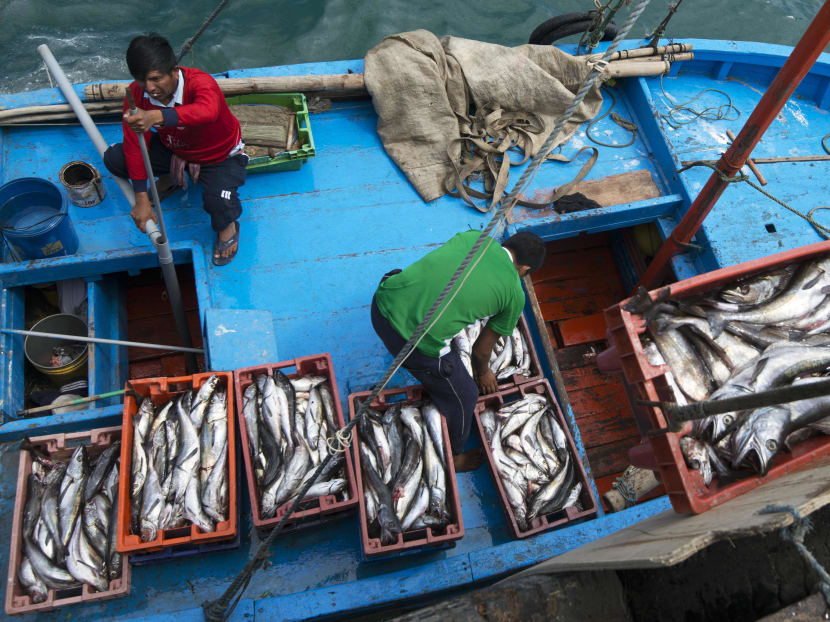Fishing pressure risks erasing largest marine animals
WASHINGTON — Humans risk causing a mass extinction of large sea creatures on a scale never before seen because of overfishing, scientists warned this week.

Workers unload the catch of the day at the pier in Nuro, Piura, northern Peru, on July 12, 2016. Photo: AFP
WASHINGTON — Humans risk causing a mass extinction of large sea creatures on a scale never before seen because of overfishing, scientists warned this week.
If the biggest fish vanish, their loss will have serious consequences for other ocean ecosystems, said the study in the journal Science.
“We’ve found that extinction threat in the modern oceans is very strongly associated with larger body size,” said study author Jonathan Payne, a paleobiologist at Stanford University. “This is most likely due to people targeting larger species for consumption first.”
If a sixth mass extinction occurs — and some scientists believe it is already under way — it will look very different than past extinctions caused by asteroid strikes, volcanic eruptions and other natural disasters.
Mass extinctions of the past typically unfolded over thousands of years. The sixth could occur in the span of a human lifetime.
“What is happening in the modern oceans is really different from what has happened in the past,” said co-author Noel Heim, also of Stanford.
Researchers used a database of fossil records to examine the links between extinction threat and traits such as body size for nearly 2,500 mollusks and vertebrates over the past 500 years, and even farther back, as long as 445 million years ago.
Because fishing efforts target the biggest creatures in the sea, the odds of being threatened with extinction have risen significantly for large marine creatures.
“What our analysis shows is that for every factor of 10 increase in body mass, the odds of being threatened by extinction go up by a factor of 13 or so,” said Dr Payne. “The bigger you are, the more likely you are to be facing extinction.”
Researchers also looked at climate change as a potential factor threatening the survival of whales and sharks, but found it was not the top culprit.
Global warming “does not appear to be the dominant driver of extinction threat for the taxa examined here. Rather, human fishing and hunting define the dominant threat to modern marine fauna”, said the study.
OVERFISHING THREAT
Fish provide 17 per cent of the animal protein consumed in the world, now home to more than seven billion people.
But some of the planet’s largest fish, including tuna and swordfish, are below 10 per cent of their historical level, according to the UN Food and Agriculture Organization.
And more than 70 per cent of the world’s fish species are either fully exploited or depleted, the FAO has said.
One way to help the world’s fish stocks rebuild is to ban commercial fishing in marine protected areas.
President Barack Obama announced the creation of a new marine reserve on Thursday of the Northeast Canyons and Seamounts Marine National Monument, a 12,725 sq km area off the Atlantic coast of New England.
The new US national monument follows Mr Obama’s expansion earlier this month of the huge Papahanaumokuakea Marine National Monument off Hawaii.
Britain also announced plans to double its area of ocean under protection, during the Our Ocean conference, hosted by Secretary of State John Kerry in Washington on Thursday and Friday. AFP





